
Even though there is an average of more than 300 days of sunshine in Colorado each year, the state accumulates plenty of snow during the fall, winter, and spring months. Each of its cities will get some snow each winter, and some a lot more than others.
Colorado’s average snowfall each year is about 67.30 inches for the entire state. However, the issue with that average is that it doesn’t take into consideration the location. On the Eastern Plains and Front Range Urban Corridor, the average snowfall is drastically lower than the mountains, which receive averages of 150-400 inches of snow each year.
From the Western Plateau to the majestic Rocky Mountains to the Great Plains, we’ve researched the average snowfall in a number of popular cities. Here’s a brief look at the snow patterns in Colorado.
Breaking Records
Each year, Colorado is blanketed by snow and the state is famous for being a wonderland for skiers and snowboarders. What many people don’t know is that Colorado holds the record in the United States for most snowfall in 24 hours.
On April 14th and 15th, 1921, the mountain town of Silver Lake, Colorado received 75.8 inches of snow in 24 hours. By 27.5 hours, the total grew to 87 inches.
Today, Silver Lake is nothing more than a ghost town. The closest major town to Silver Lake is Silverton, which is a mining town in the San Juan Mountains. You can still hike out to Silver Lake though for those looking to explore nature at high elevation in the San Juans.
Average Snowfall in Colorado
To provide you with the best information, we’ve taken a list of 25 places around Colorado and researched their annual snowfall. Looking at big cities like Denver and Colorado Springs, we’ve also explored smaller mountain towns and quiet communities on the Eastern Plains. And remember, it doesn’t just snow during winter in Colorado.
Aspen
Originally founded as a mining settlement during Colorado’s Silver Boom, the town was redeveloped in the 1950s to be a ski resort. Since then, Aspen has gained international acclaim for its beautiful scenery and year-round activities.
On average, there are 179 inches of snowfall in Aspen each year. The most snow that has ever fallen in Aspen was during the 1983-1984 season when 276 inches fell over winter. Most years, snow in Aspen begins to fall in October and lasts until May.
Boulder
Situated at the base of the stunning Flatirons in the foothills of the Front Range is Boulder, Colorado. With high living standards, Boulder is famous for its hippie and eco-friendly lifestyles.
Each year, an average of 89 inches of snow falls in Boulder. The most snow that has ever been recorded in the city is 76 inches in a 24 hour period on April 15th, 1921. Boulder’s snowfall begins in October and lasts until May.
Breckenridge
In Summit County, Breckenridge is the top ski resort. The area around Breckenridge is famous for its fishing, hiking, white water rafting, and wildflowers.
The town of Breckenridge sits at 11,500 feet in altitude and it has a high-alpine climate. Even during the summer months, the temperatures drastically cool as soon as the sun goes down.
On average, 300 inches of snow falls in Breckenridge each year. The snowiest period ever recorded in Breckenridge lacks exact measurements, but during the 1898-1899 winter season, there were 79 days of continuous snow.
Interestingly, Breckenridge is one of the few places where it is possible for snow to fall every month of the year. However, snowfall during the summer is not very common. Most years, the snow begins in October and lasts until May.
Cañon City
Situated beside the Arkansas River, Cañon City is famous for its fossil discoveries, Skyline Drive, and the Royal Gorge. The city was founded during the Pike’s Peak Gold Rush in 1858. Nicknamed the “Climate Capital of Colorado”, Cañon City has a fairly mild climate.
Most years, an average of 33 inches fall in the city with the most snow ever recorded falling on February 21, 1997. On that day, 22.5 inches of snow fell in 24 hours in Cañon City.
The city’s mild climate means that snow begins to fall later in the year. Most years, the first snow is a light dusting that happens in mid to late October. The snowy season typically ends in February, although some years it stretches into March.
Castle Rock
Castle Rock, named for the castle-shaped butte that overlooks the center of town, is part of the Front Range Urban Corridor. Located south of Denver, the city sits between Denver and Colorado Springs.
Originally thought to contain gold, in the 1860s the discovery of rhyolite stone led to the foundation of Castle Rock’s first settlement. With a semiarid climate, Castle Rock has hot, wet summers and cold, dry winters.
About 78 inches of snow falls in Castle Rock each year. The snowiest year on record in the city was in 1928, when 125.9 inches fell over the season. Snowfall in Castle Rock begins at the end of September and lasts until mid-May.
Colorado Springs
The state’s 2nd most populous city after Denver, Colorado Springs sits on the eastern foot of the Rocky Mountains. Pikes Peak, one of the most famous mountains to reach over 14,000 feet tall towers over Colorado Springs.
Iconic parts of Colorado Springs include the Pike National Forest, Garden of the Gods, and the United State Air Force Academy.
Each year about 57.3 inches of snow falls in Colorado Springs. The most snow ever recorded in one year was in 1957 when 96.4 inches fell.
Creede
A small town with only 257 people in 2020, Creede was originally settled in the early 19th century. Although the town never boomed to become a giant, the proximity of Creede to the Rio Grande made it a successful place for farming and ranching.
The average annual snowfall in Creede is 175.1 inches. There is no public record of the most snowfall in the town, but during the 1978-1979 winter season, just outside of Creede 837.5 inches of snow fell on Wolf Creek Pass. Typically, snow arrives in Creede in November and lasts until April.
Denver
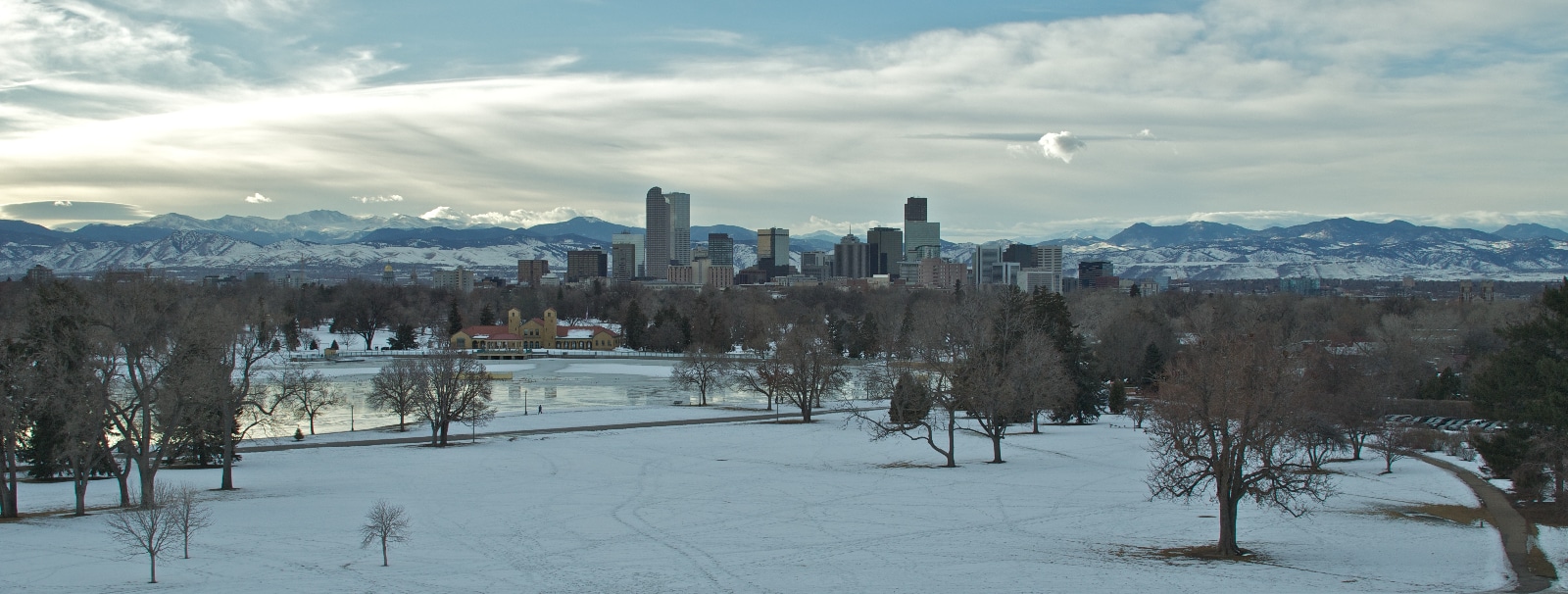 Winter in Denver, Colorado. Photo: Nathan Forget
Winter in Denver, Colorado. Photo: Nathan Forget
The capital of Colorado, Denver typically isn’t a very snowy location. Being located at 5,280 feet in altitude helps shelter the city from the worst of the weather.
On average, 56.5 inches of snow falls in Denver each year. The most snow that was ever recorded in the city was during a blizzard in 1913, when 45.7 inches fell over a period of 5 days.
An average season in Denver sees snow begin to fall in mid-October and last until late May. Very rarely, snow has been recorded in early June.
Durango
Located in Southwestern Colorado, Durango is most commonly associated with the historic railroads and majestic mountains. Nestled within the San Juan Mountain Range, the town sits at an elevation of 6,522 feet above sea level.
An average of 71 inches of snow falls each year. In February 1911, 57.6 inches of snow fell making it Durango’s snowiest month in history. Light snowfall begins in October before becoming heavier in November. Most years, the snowfall stops in April.
Fort Collins
In Northern Colorado, Fort Collins is a historic city that was founded in the early 1800s. Now full of young residents, Fort Collins is home to Colorado State University. Similar to Boulder, Fort Collins is located at the base of the foothills.
Most years an average of 48 inches of snow falls in Fort Collins. The most snow on record was during the March 2003 blizzard when 32.2 inches of snow fell during the storm. October marks the beginning of snow in the city and by April, the snow ends for the season.
Glenwood Springs
Known for its hot springs and rugged Rocky Mountain landscapes, Glenwood Springs is a small resort town near the Colorado River. Sitting deep within a canyon, the city’s elevation is only 5,761 feet.
About 67 inches of snow falls each year in Glenwood Springs. The most snow recorded occurred during the month of January in 1996 when 58.5 inches fell. The earliest measurable snow begins to fall in October and ends in May.
Grand Junction
On Colorado’s Western Slope, Grand Junction has some of the most mild weather in the state. On average, only 15.8 inches of snow falls during the year. During the 1919-1920 season, the record was shattered when 65.7 inches fell.
With such a mild climate, snow doesn’t begin to fall in Grand Junction until November and the season is short, with most big storms ending by January.
Gunnison
Built for year-round adventures, Gunnison has plenty of hiking trails, historic sites, and a tight-knit community.
With an altitude of 7,703 feet, the city sees an average of only 48.4 inches of snow each year. The most snow that has ever fallen in Gunnison was in January 1957 when 50.2 inches fell during the month.
In Gunnison, snowfall begins in October and lasts until late April.
Hugo
On the Eastern Plains, Hugo is a small town with less than 1,000 people. Once an important stop for the Kansas-Pacific and Union Pacific Railroads, the town is now marked as a historic district.
Being located on the Eastern Plains means that an average of only 34 inches of snow falls on Hugo each year. There is no record for the most snowfall, but it is estimated that large drifts of snow were blown onto the town from Denver during the 1913 blizzard. On an average year, Hugo will see snow from November to March.
La Junta
A historic town, La Junta is famous for its farming and ranching industries. Rocky Ford cantaloupes are grown in the area and the city is located on US Highway 50 (the Coast to Coast Highway). Sitting at a low elevation of 4,078 feet, about 29 inches of snow falls in La Junta each year.
The most snow ever recorded in La Junta was during the 1997 blizzard. Using estimates, it is believed that 2-3 feet of snow fell during the blizzard, but accurate measurements were not available because of high winds. December to April are snowy months in La Junta.
Leadville
Once booming with nearly 30,000 residents during its mining heydays, Leadville has seen its population dramatically drop over the years to only a few thousand. With an elevation of 10,152 feet, the city sees plenty of snow each winter.
An average of 142.7 inches of snow falls in Leadville each year. The snowiest year on record was 1996 when 247.9 inches of snow fell in the area. Due to the high elevation, snow begins to fall in September and lasts until June.
Meeker
Surviving off of agriculture, Meeker is a small town in Northwestern Colorado. The town sits in a valley near the White River and it has a fairly temperate climate. On average, 55.5 inches of snow falls in Meeker annually. In 1919, more than 40 inches of snow fell during one blizzard.
Following typical fall and winter patterns throughout the state, snow begins to fall in Meeker in mid-October. By late April, most of the cold storms will have passed for the season.
Montrose
A small town on Colorado’s Western Slope is Montrose. Surrounded by epic landscapes, the town is a year-round vacation destination. Although mountains tower over the town, Montrose itself has a low average of 33.9 inches of snow each year.
In 1918, 71.9 inches of snow fell in Montrose, which is the most recorded ever for the town. Usually, snowfall begins in early November and lasts until late March.
Pueblo
South of Colorado Springs, Pueblo is famous for straddling the Arkansas River. Once used as a river settlement and trading post, the city has grown to become a charming destination. With a mild climate, only 25 inches of snow falls on Pueblo most years.
The most snow that has ever fallen in Pueblo in a 24 hour period was 16 inches on November 14, 1985. On average, Pueblo will begin to see snow in mid-November with most snowfall ending by mid-February.
Steamboat Springs
In Northern Colorado, one of the most famous resort areas is Steamboat Springs. Surrounded by 6 peaks, the city has plenty of snow to fuel winter activities each season. On average, 184.5 inches of snow falls in Steamboat Springs each year and the ski resort is the 2nd snowiest in Colorado.
During the 2007-2008 season, 489 inches of snow fell making it the snowiest period on record for Steamboat Springs. However, most years, the snow is much less with storms beginning in October and lasting until late May.
Sterling
Called the “Queen City of the Plains”, Sterling is a small city in Northeastern Colorado. Not very snowy, the city has an average of 31 inches of snow each year.
Official records don’t provide exact measurements, but during a blizzard in January 1949, the largest snow drift in Sterling was 36 feet tall. A typical year in Sterling will see snow begin to fall in late October and last until mid-April.
Telluride
Nestled in a stunning box canyon, Telluride is a popular summer and winter resort in Colorado. Between the town and ski resort, the average snowfall dramatically changes. In town, an average of 167.2 inches of snow falls each year, but at the resort the average rises to 276 inches.
On April 2nd, 1903, Telluride’s highest record for snow was 28.5 inches in a 24 hour period. Due to the higher elevations, snow can begin to fall as early as September and last as late as June.
Trinidad
Close to the border with New Mexico, Trinidad is a small town that was founded by ranchers during the 1800s. Located along the Santa Fe Trail, the city is a year-round destination. During the snowy season, an average of 63.4 inches of snow falls each year.
In 2006, the snowiest month in Trinidad’s record was December when 49.5 inches fell. Usually snow in Trinidad begins in October and lasts until early May.
Vail
Another famous resort area in Colorado is Vail. With plenty of snow, an average of 189.2 inches falls each season. Vail’s snowiest season on record was in 1996, when 331.1 inches fell. During an average year, Vail will have snow from October to May.
Winter Park
Another resort area that sees tons of snow is Winter Park. With an average of 344.6 inches of fresh powder each year, Winter Park is one of the top ski resorts in Colorado.
March 3rd, 1919 was Winter Park’s snowiest day in history with 46 inches falling in a 24 hour period. Usually, Winter Park’s snowfall lasts from October to May.
Fast Facts
The snowiest place in Colorado is Crested Butte with an average snowfall of 216.6 inches.
The least snowy place in Colorado is Grand Junction with an average snowfall of 15.8 inches.
March is typically the snowiest month in Colorado.
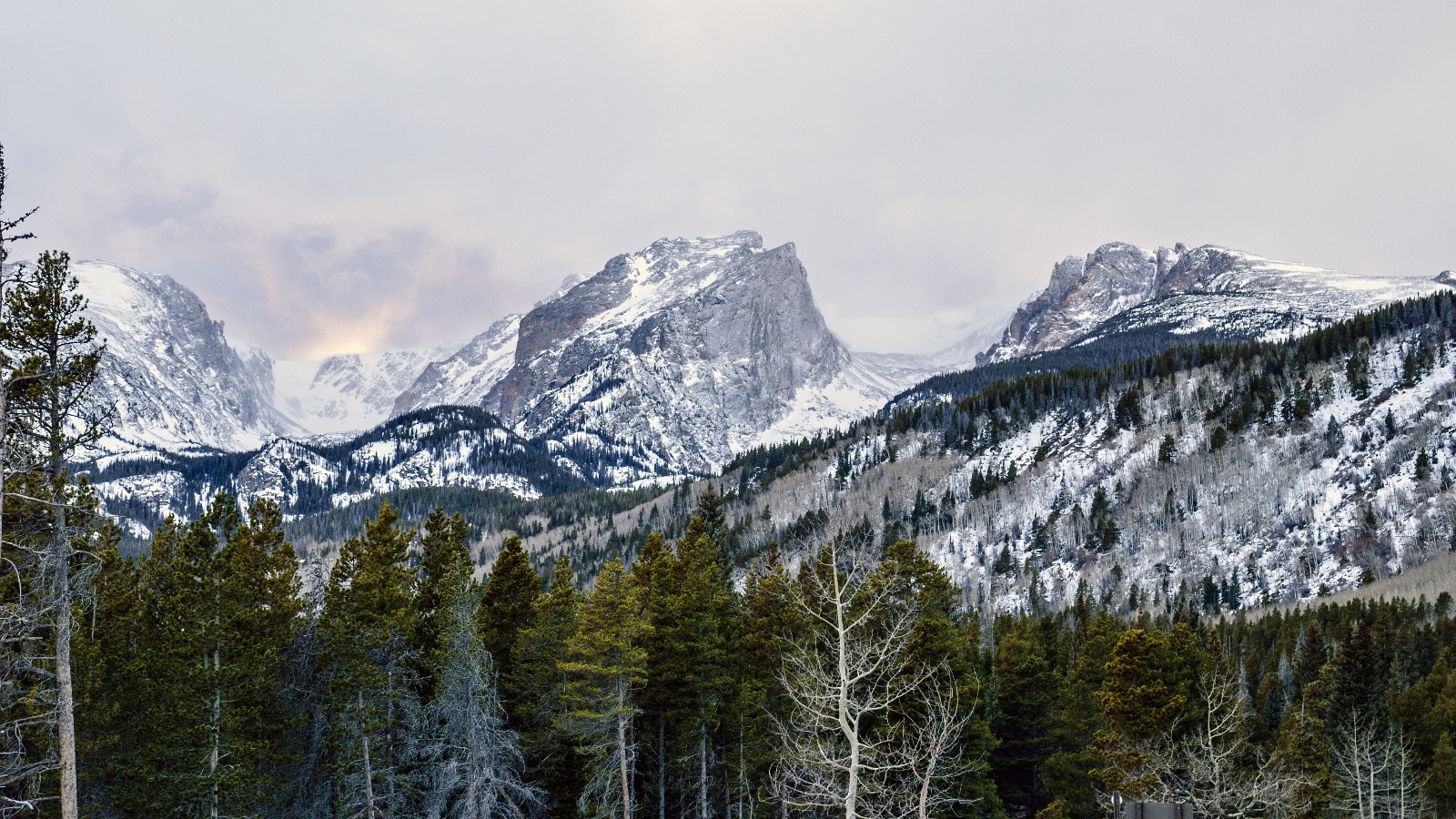 Snow covered mountains in Colorado. Photo: John Carrel
Snow covered mountains in Colorado. Photo: John Carrel
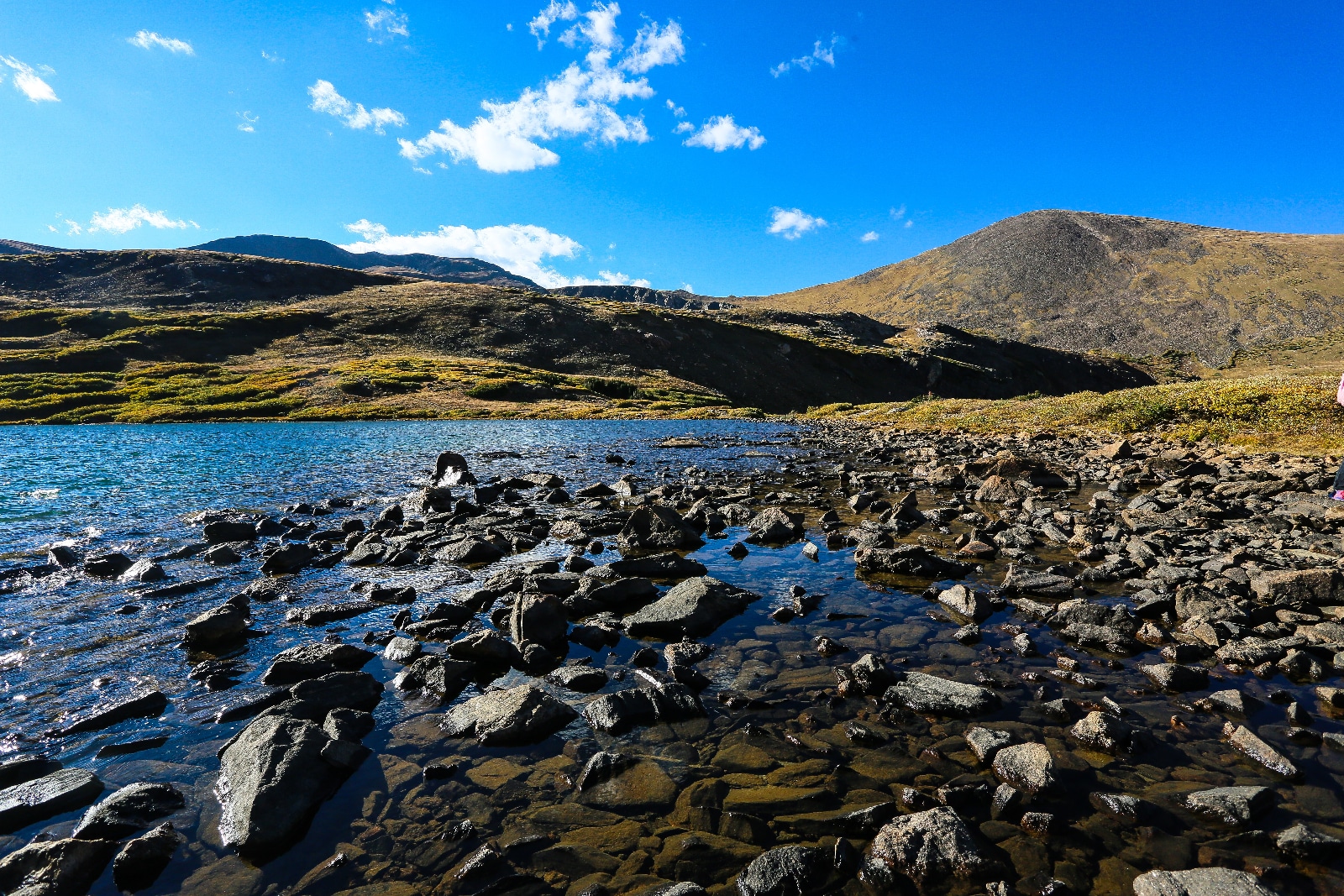 Silver Lake outside of Silverton, Colorado. Photo: reid.neureiter
Silver Lake outside of Silverton, Colorado. Photo: reid.neureiter
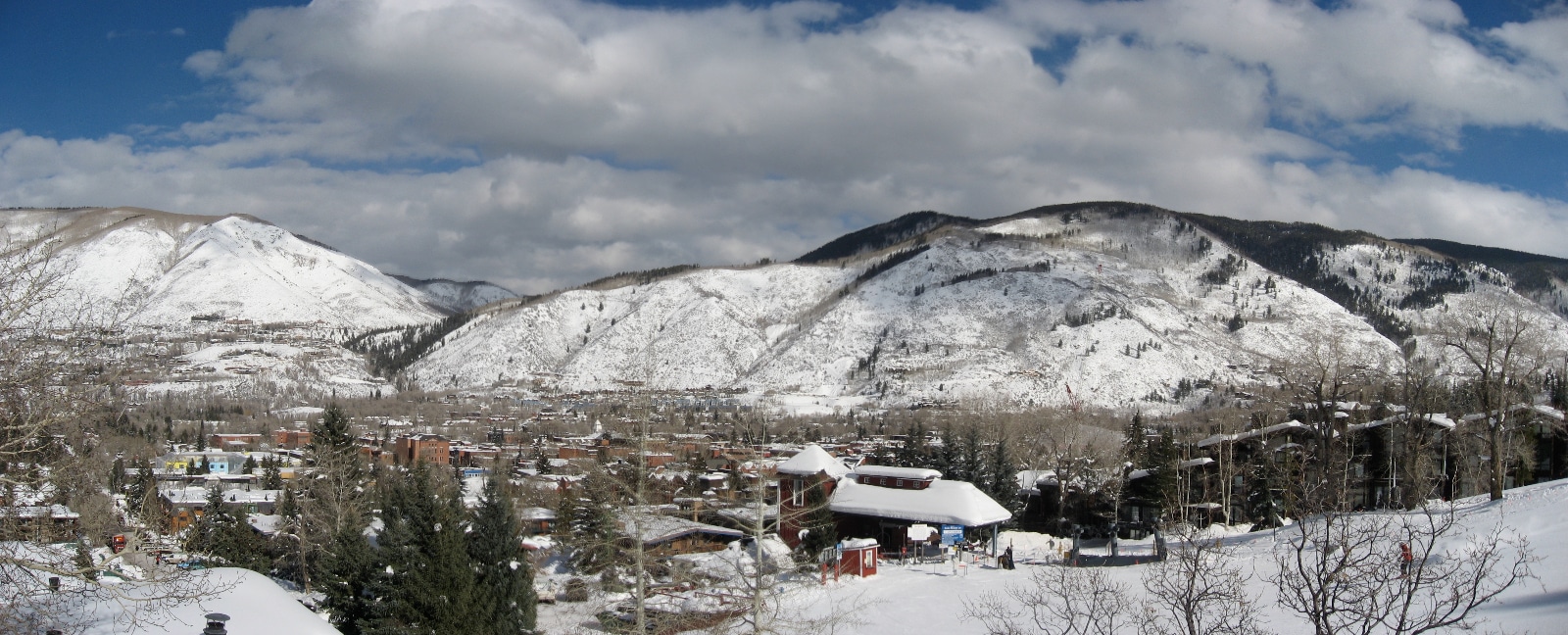 Winter in Aspen, Colorado. Photo: Brantley
Winter in Aspen, Colorado. Photo: Brantley
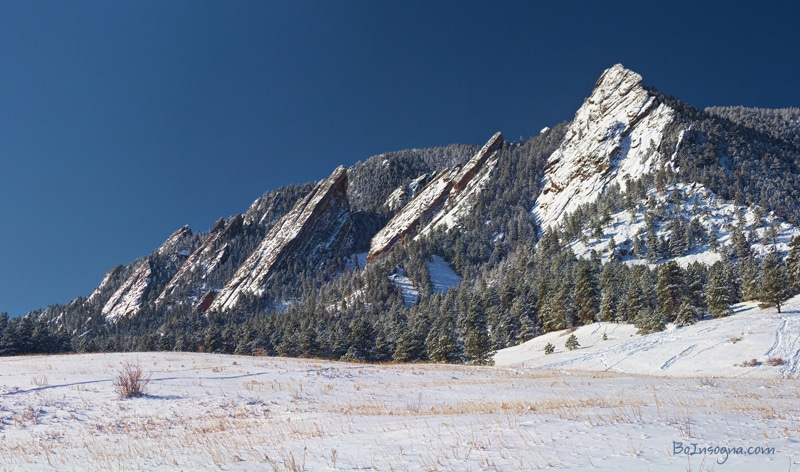 Snow covering the Flatirons in Boulder, Colorado. Photo: Bo Insogna
Snow covering the Flatirons in Boulder, Colorado. Photo: Bo Insogna
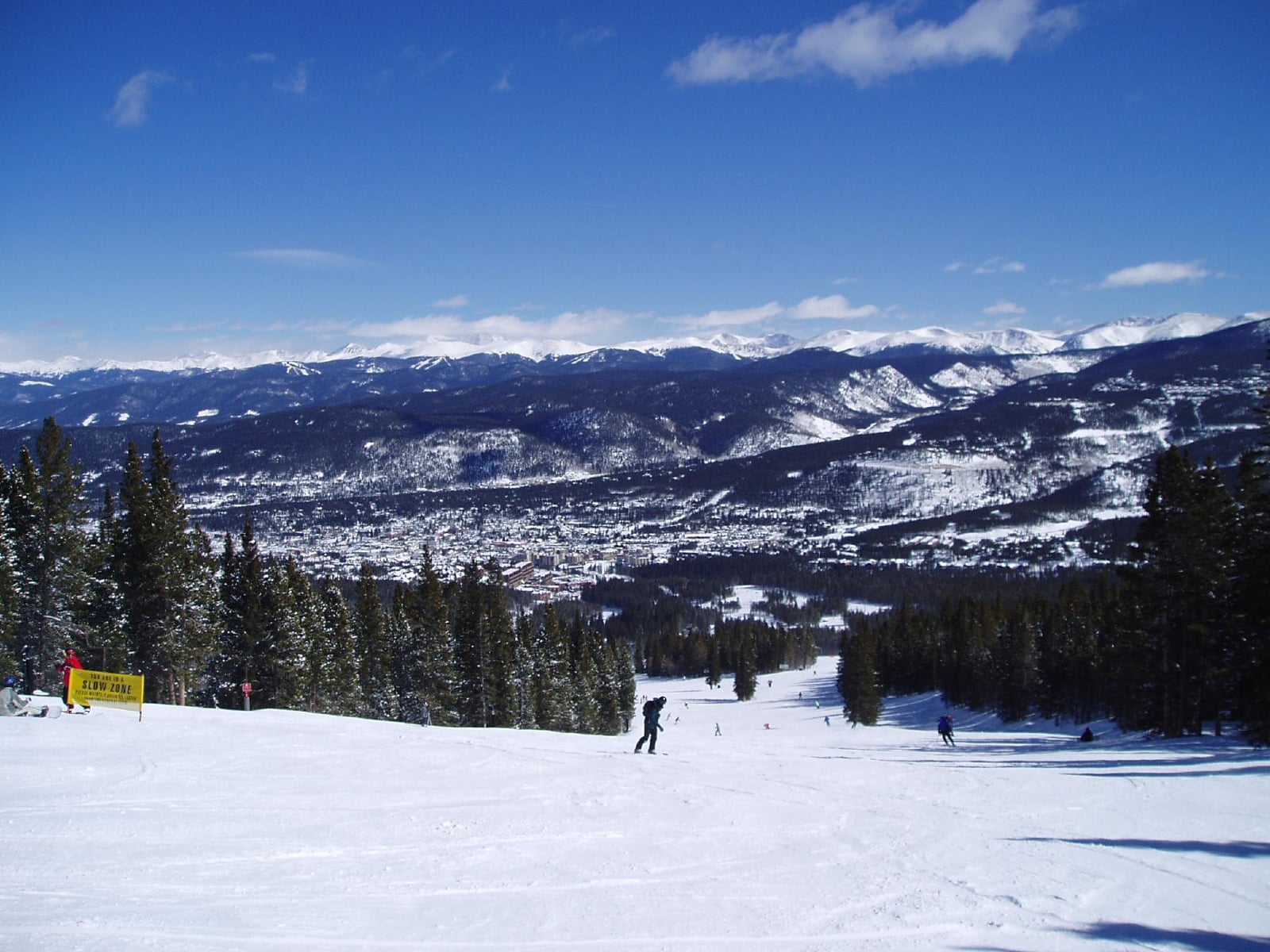 Breckenridge Ski Resort in Colorado. Photo: Doug Bradley
Breckenridge Ski Resort in Colorado. Photo: Doug Bradley
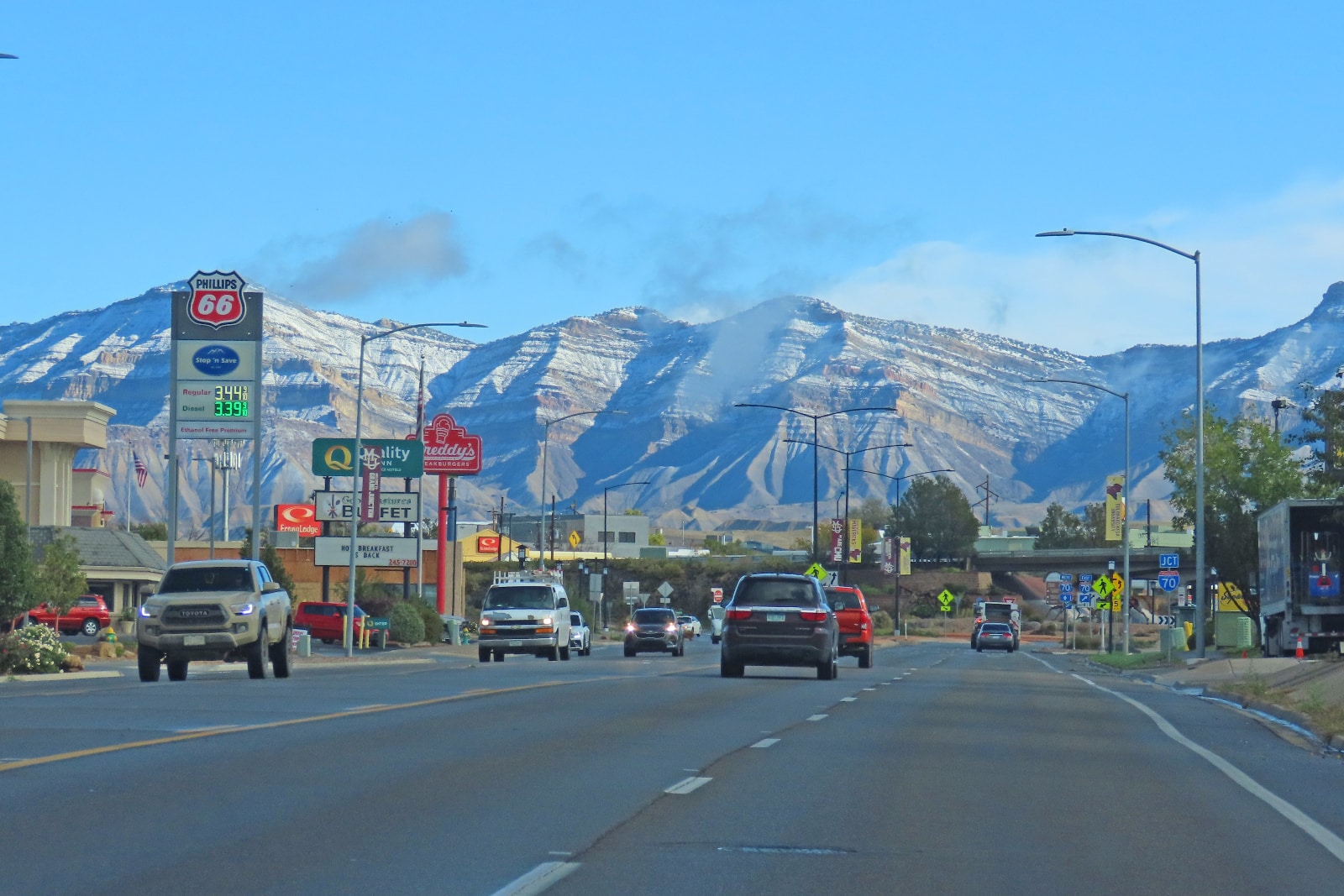 Light snow in Grand Junction, Colorado. Photo: jcsullivan24
Light snow in Grand Junction, Colorado. Photo: jcsullivan24
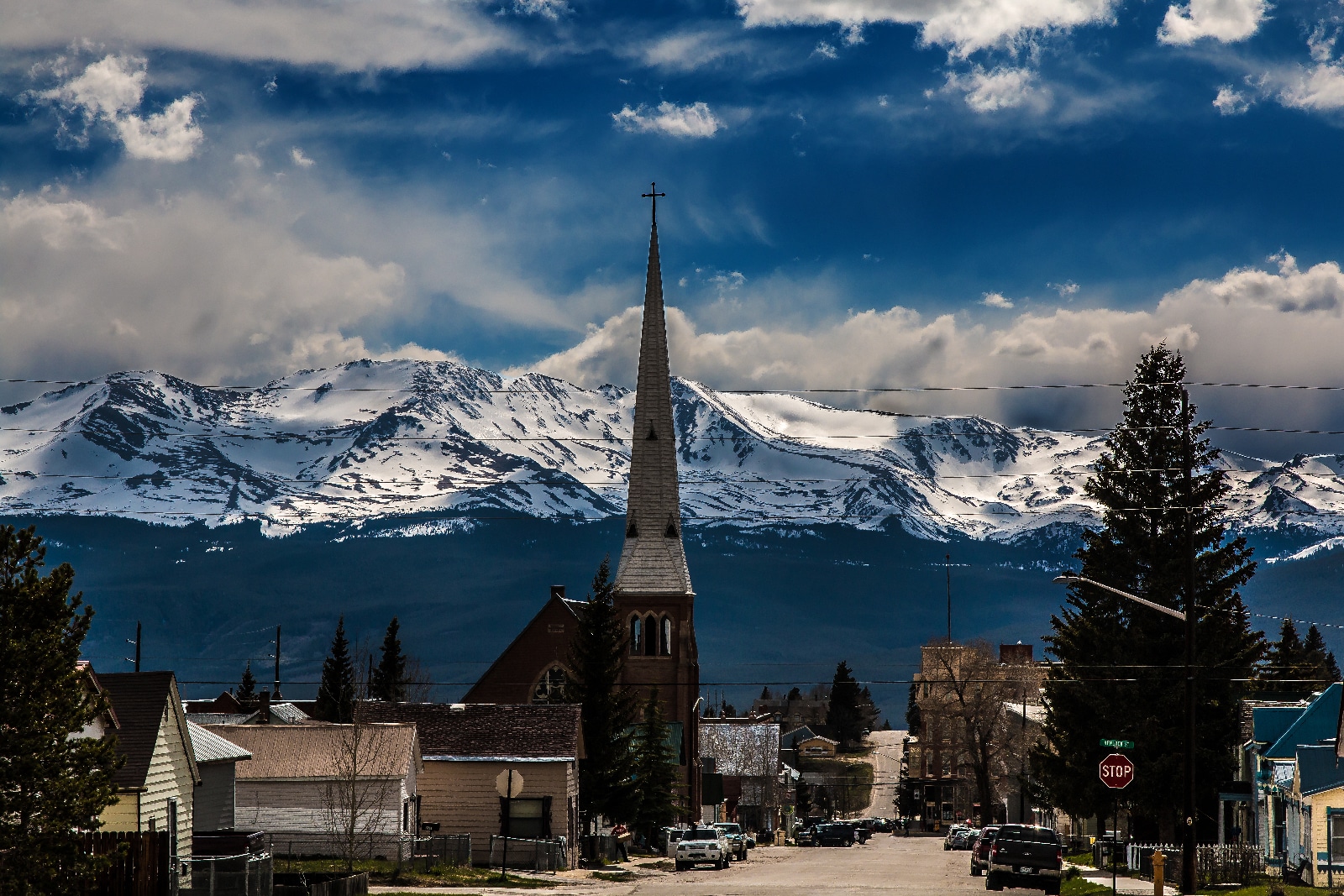 Snowy peaks in Leadville, Colorado. Photo: Gene
Snowy peaks in Leadville, Colorado. Photo: Gene
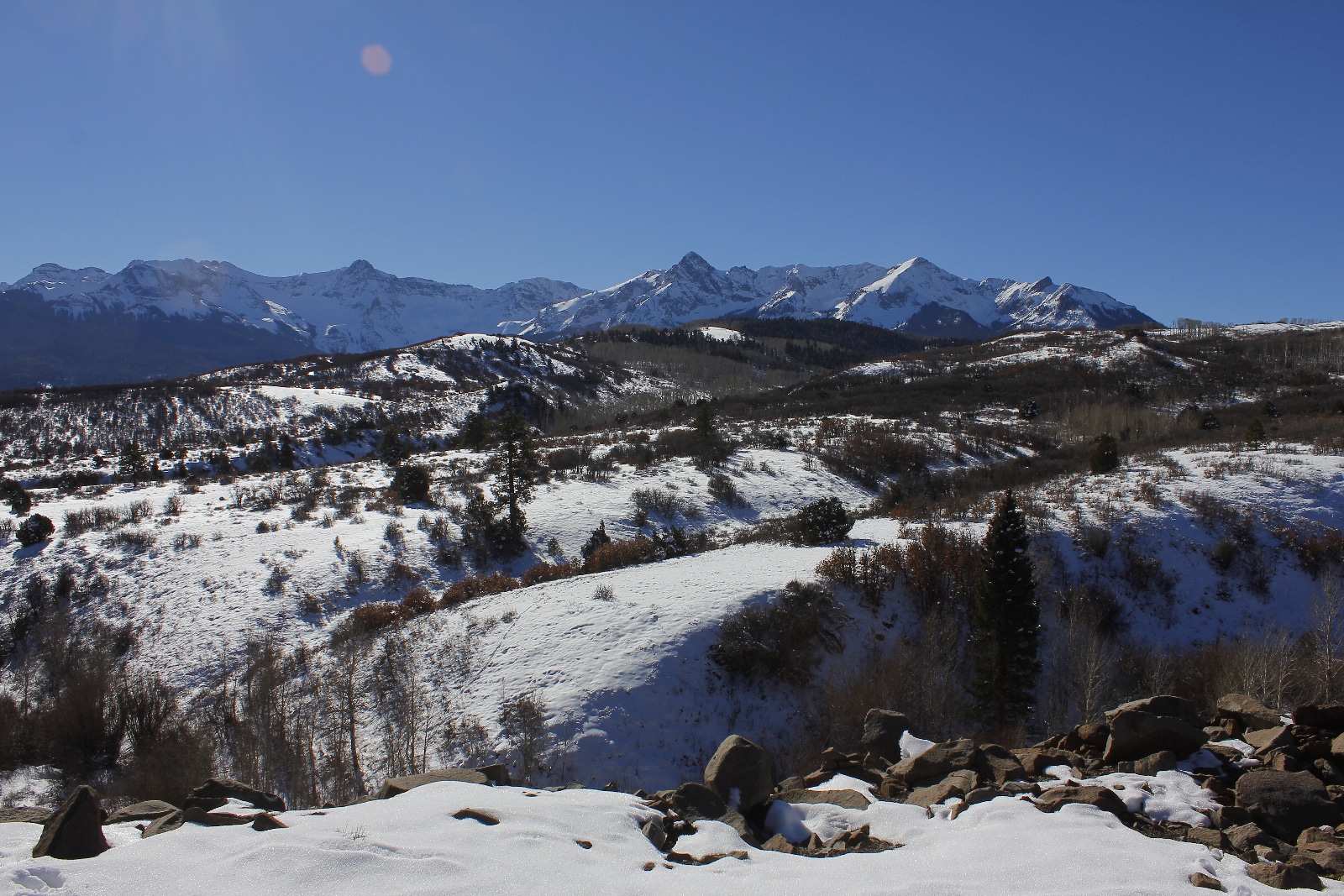 Snowy mountains in Montrose, Colorado. Photo: Daniel Goodwin
Snowy mountains in Montrose, Colorado. Photo: Daniel Goodwin
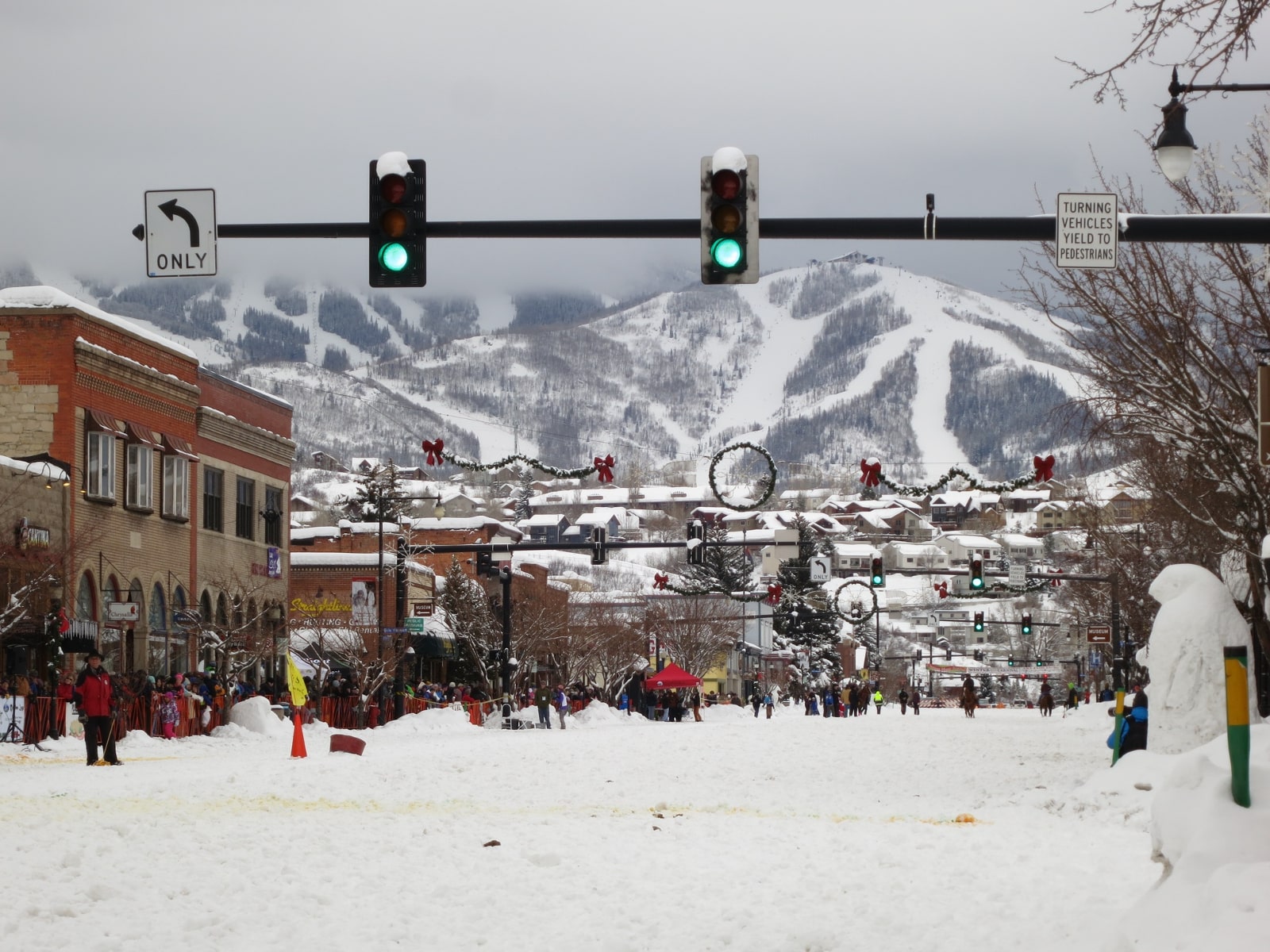 Snow in Steamboat Springs, Colorado. Photo: Frank DiBona
Snow in Steamboat Springs, Colorado. Photo: Frank DiBona
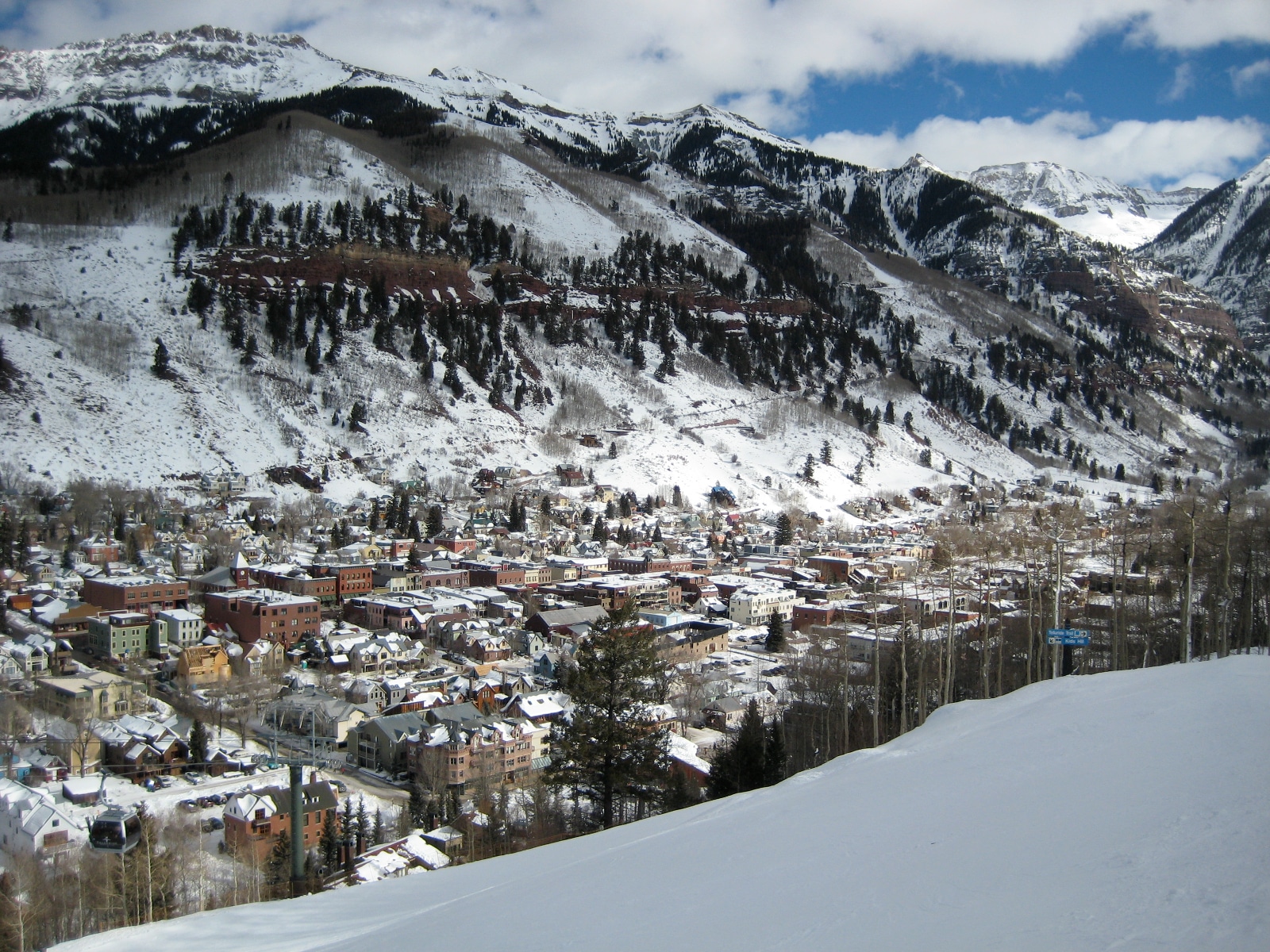 Wintertime in Telluride, Colorado. Photo: Michael Wyszomierski
Wintertime in Telluride, Colorado. Photo: Michael Wyszomierski
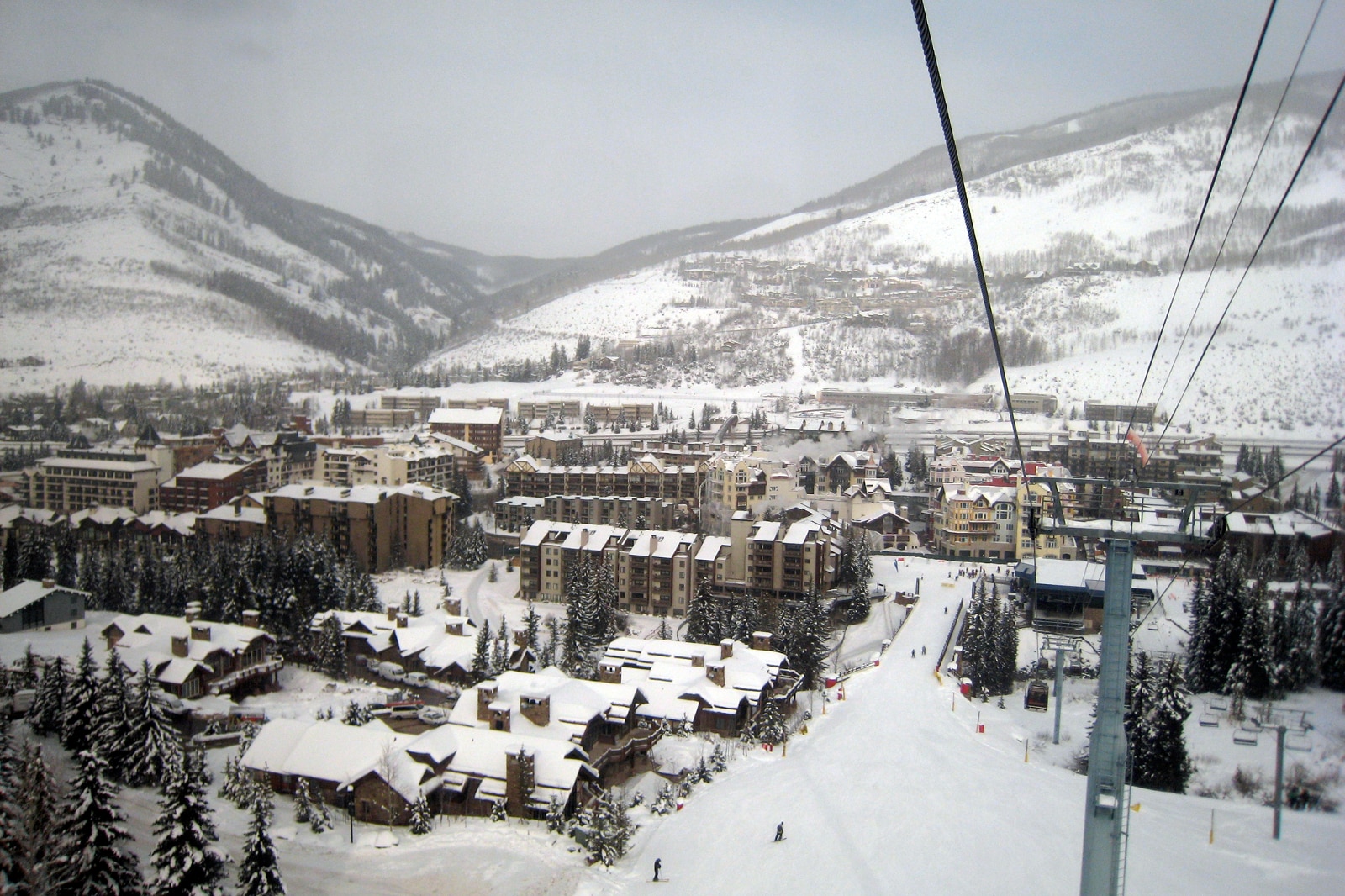 Ski resort in Vail, Colorado. Photo: Doug Letterman
Ski resort in Vail, Colorado. Photo: Doug Letterman
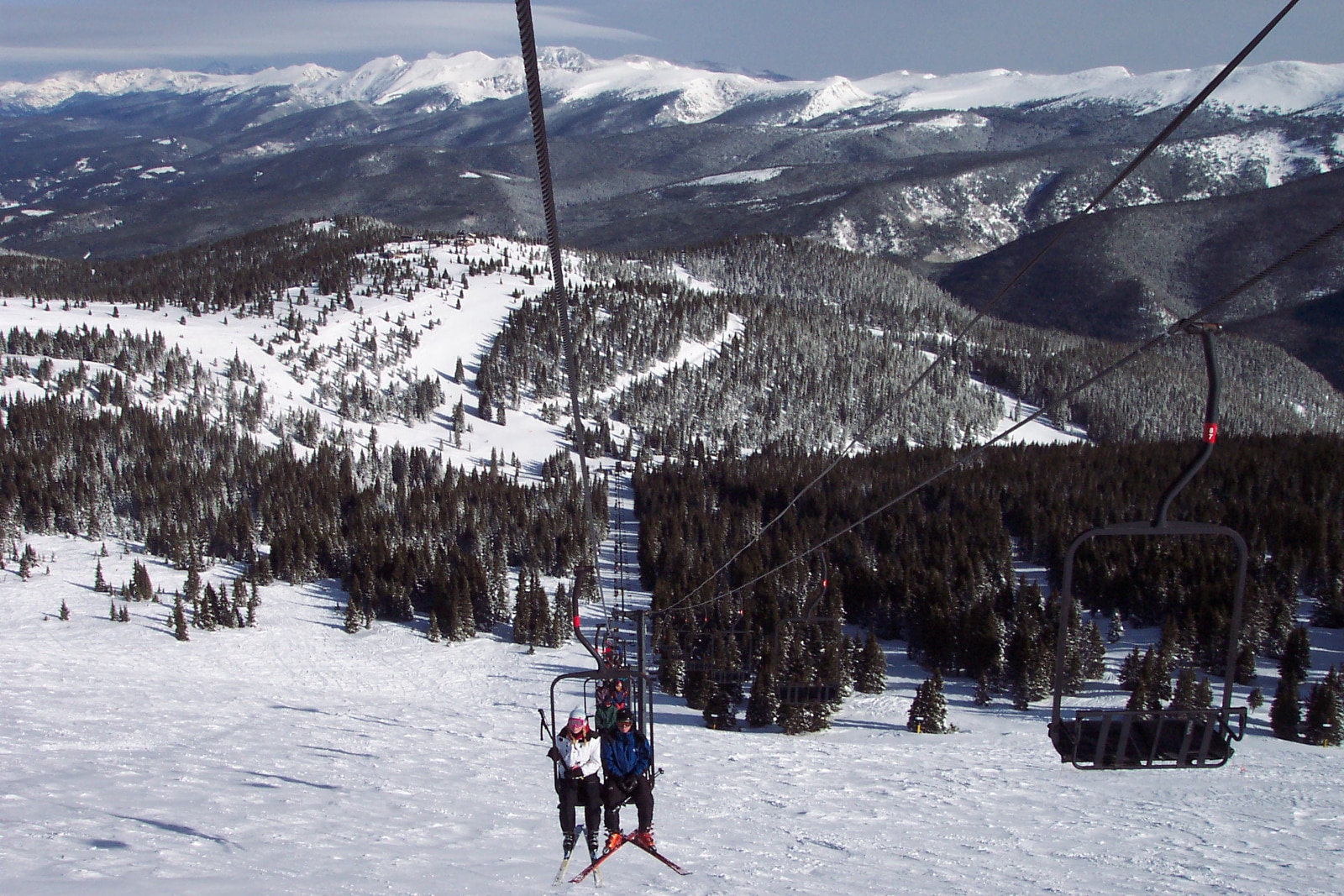 Snow covered ski resort in Winter Park, Colorado. Photo: Heath Alseike
Snow covered ski resort in Winter Park, Colorado. Photo: Heath Alseike
